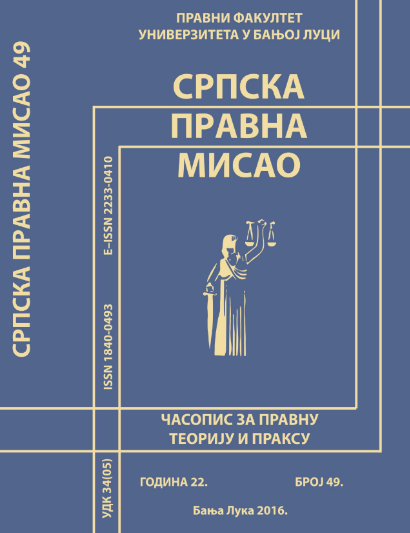ELEMENTS AND STRUCTURE OF THE FRANCHISE AGREEMENT
DOI:
https://doi.org/10.7251/SPM162249004CAbstract
The franchising contract was created at the end of the 19th century in the USA, and its application was only noticed in European countries in the middle of the 20th century. Applying it through their business, business entities have recognized the possibility of gaining profit with much lower risks compared to new business ventures that involve entering into a new, undeveloped and unknown business to the market (even to the users themselves) that must go through all stages of acceptance. The franchising contract is an extremely complex contract with elements of other, classic and newer contracts, which is why it is often mistakenly equated and replaced with them. Modern legal instruments, which legally shape the franchising business, represent the creation of the common law legal system. The franchising contract is created by a written agreement of the contracting parties on the elements of economic cooperation included in that contract. Uniformly concluded contracts ensure the same legal position of all franchisees with each other and in relation to the franchisor, thus preventing disputes between participants regarding the unilateral privileges of one of the franchisees. The necessity of a written franchising contract is generally accepted in the legal literature, although there are no legal regulations on this. The aim of the paper is to present the essential elements and structure of the franchising contract, with special reference to the specifics of the Anglo-Saxon legal technique, which is reflected in the detailed regulation of all potentially foreseeable situations. The paper deals with contractual clauses as the basic form of presentation of contractual content, with special reference to clauses regulating specific contractual obligations that make this contract a sui-generis contract.
Downloads
Published
Issue
Section
License

This work is licensed under a Creative Commons Attribution-NonCommercial-NoDerivatives 4.0 International License.



